SACEMA Newsletter: December 2018
We wish all our friends, colleagues, students and collaborators a Blessed Holiday Season and a Prosperous New Year!
NEWS
SACEMA postdoc receives Y rating from NRF
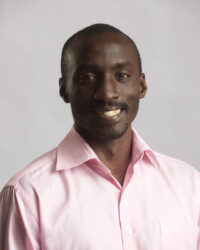 Dr Joseph Sempa recently received a Y-rating from the National Research Foundation (NRF). A Y-rated researcher is defined as someone who is a promising young researcher. Joseph has been part of SACEMA since 2014 when he was recruited to do a PhD. After completing his PhD in 2017 he joined the Measuring Infection teamat SACEMAas a postdoctoral research fellow, working on Antiretroviral treatment monitoring. We are extremely proud of Joseph and celebrate this achievement with him.
Dr Joseph Sempa recently received a Y-rating from the National Research Foundation (NRF). A Y-rated researcher is defined as someone who is a promising young researcher. Joseph has been part of SACEMA since 2014 when he was recruited to do a PhD. After completing his PhD in 2017 he joined the Measuring Infection teamat SACEMAas a postdoctoral research fellow, working on Antiretroviral treatment monitoring. We are extremely proud of Joseph and celebrate this achievement with him.
SACEMA postdoc receives 2018 Vice-Rector Postdoctoral Award
 SACEMA postdocfellow, Dr Olugbenga Oluwagbemi received the 2018 Vice-Rector Postdoctoral Award for the Top 20 Postdocs atStellenbosch University. Launched in 2017 by Prof Eugène Cloete, Vice-Rector: Research, Innovation and Postgraduate Studies, this initiative aims to provide awards annually to twenty postdoctoral fellows at Stellenbosch University who demonstrate excellence and productivity. The successful postdocs each receive a sum of R10 000 to use as they wish. Awards are made based onproductivity of the postdocin terms of research outputs, student supervision, funds raised for the department, conference andworkshop presentations,and the calibre of networks created within their career on projects. We congratulate Bengaon this exceptionalachievement.
SACEMA postdocfellow, Dr Olugbenga Oluwagbemi received the 2018 Vice-Rector Postdoctoral Award for the Top 20 Postdocs atStellenbosch University. Launched in 2017 by Prof Eugène Cloete, Vice-Rector: Research, Innovation and Postgraduate Studies, this initiative aims to provide awards annually to twenty postdoctoral fellows at Stellenbosch University who demonstrate excellence and productivity. The successful postdocs each receive a sum of R10 000 to use as they wish. Awards are made based onproductivity of the postdocin terms of research outputs, student supervision, funds raised for the department, conference andworkshop presentations,and the calibre of networks created within their career on projects. We congratulate Bengaon this exceptionalachievement.
SACEMA Science in Context topic a huge success
This year the Faculty of Science, Stellenbosch University introduced a new module called “Science in Context”, aimed at introducing first-year undergraduate students to the interdisciplinary nature of modern science. Each department within the faculty proposed different topics for the students to work on in small groups, under the mentorship of representatives from the departments. SACEMA’s proposed topic about the eradication of infectious diseases was chosen by five groups. SACEMA PhD student Elisha Are was chosen to serve as a mentor, with the assistance of Postdoc, Joseph Sempa and Senior Research Fellow, Prof John Hargrove. Following the successful completion of the module, Elisha reports: “The students were highly motivated and ready to learn. Their insights and ideas about eradication are fascinating. The pleasant surprise on their faces when they realized how seemingly unconnected science disciplines can be combined in the fight against infectious disease was thrilling, to say the least”.
As part of the module, the students presented their findings to an audience consisting of faculty representatives, mentors for different groups and first-year students. During the closing eventheld on 13 November,mentors were given feedback on the performance of their students. For SACEMA cohorts, the feedback was very impressive. Elisha comments, “it is safe to say that SACEMA Science in Context topicfor 2018 was a huge success”.
Zambezi Valley may soon be too hot for tsetse flies
SACEMA’s John Hargrove and Glyn Vale were co-authors on a paper, published in PLOS Medicine, based on 27 years of data from Zimbabwe, suggesting that temperature increases over the last three decades have already caused major declines in local populations of tsetse flies. Since the 1990s, researchers at Rekomitjie Research Station, in the Zambezi valley have been catching tsetse flies from cattle and found that the catches declined from more than 50 flies per animal per catching session in 1990, to less than 1 fly per 10 catching sessions in 2017. Since 1975, mean daily temperatures have risen by nearly 1° C and by around 2°C in the hottest month of November.
The study was carried out in collaboration with researchers from the Liverpool School of Tropical Medicine. A mathematical model was developed and used to show that recent increases in temperature could account for the simultaneous decline of tsetse. The results provided evidence that locations such as the Zambezi Valley in Zimbabwe may soon be too hot to support tsetse population, thereby providing a first step in linking temperature to the risk of sleeping sickness in Africa.
Graduations 2018
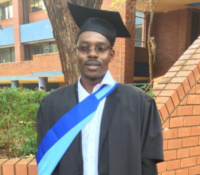 Martin Mafunda graduated with an MSc in Mathematics, in the School of Mathematical and Natural Sciences at the University of Venda. His thesis, entitled “Multiscale Modelling of HIV/AIDS Transmission Dynamics” was supervised by Prof Winston Garira.
Martin Mafunda graduated with an MSc in Mathematics, in the School of Mathematical and Natural Sciences at the University of Venda. His thesis, entitled “Multiscale Modelling of HIV/AIDS Transmission Dynamics” was supervised by Prof Winston Garira.
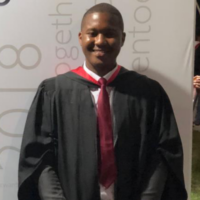 Emanuel Dominic graduated with an MSc in Mathematics, in the Faculty of Science at Stellenbosch University. His thesis, entitled “Age-Mixing Patterns and Associations Between Partner Age Differences and Relationship Characteristics that Affect HIV Transmission Risk” was supervised by Prof Wim Delva of SACEMA.
Emanuel Dominic graduated with an MSc in Mathematics, in the Faculty of Science at Stellenbosch University. His thesis, entitled “Age-Mixing Patterns and Associations Between Partner Age Differences and Relationship Characteristics that Affect HIV Transmission Risk” was supervised by Prof Wim Delva of SACEMA.
We congratulate the 2018 graduates and wish them all the very best for the future!
Arrivals and Departures
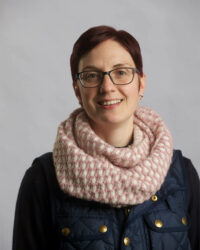
Larisse Bolton joined SACEMA in September as a Postdoctoral Research Fellow. Her current research project, under the supervision of Prof Juliet Pulliam, and in collaboration with the South African National Blood Services (SANBS) and Western Province Blood Transfusion Services (WPBTS), seeks to analyse blood product usage, evaluate unmet clinical demand and examine the unmet need, all within the South African context. Larisse holds a BSc in Chemistry and PhD in Applied Mathematics, both obtained from the University of the Free State in Bloemfontein. Her PhD thesis, entitled “Practical approaches to the application of mathematical modelling in oncology: From model investigation to data-driven model construction” was under the supervision of Prof Cang Hui, Prof Thomas Acho and Prof David Stones. Herein, the mathematical modelling of two different cancers were undertaken from two perspectives respectively. The first, model adaptation and the second, model construction. This prior research, as well as her current research, aligns with her overall passion which is to use her mathematical skills to aid clinicians and bring about change in pressing health issues. .
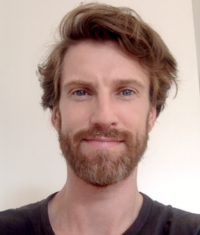 At the end of the year SACEMA said goodbye to Andrew Maher who spent the last 5 months as an in-house PhD student working with Prof Alex Welte on a project entitled “Use of a Home-based Testing Program for Population-Level Estimates of HIV Incidence: Demonstration and Critical Assessment of a Novel Surveillance Method in Namibia’s Zambezi Region”. Andrew, originally from the United States, has worked as a researcher and program manager for various HIV related surveillance activities in Malawi and Namibia with the University of California San Francisco’s Institute for Global Health Sciences and, previously, with the U.S. Centers for Disease Control and Prevention through the Allan Rosenfield Global Health Fellowship Program. While he will no longer be based at SACEMA, Andrew who is currently registered as a PhD student in Epidemiology and Biostatistics at the Faculty of Medicine and Health Sciences at StellenboschUniversity, will continue the work on his PhD under the supervision of Prof Alex Welte.
At the end of the year SACEMA said goodbye to Andrew Maher who spent the last 5 months as an in-house PhD student working with Prof Alex Welte on a project entitled “Use of a Home-based Testing Program for Population-Level Estimates of HIV Incidence: Demonstration and Critical Assessment of a Novel Surveillance Method in Namibia’s Zambezi Region”. Andrew, originally from the United States, has worked as a researcher and program manager for various HIV related surveillance activities in Malawi and Namibia with the University of California San Francisco’s Institute for Global Health Sciences and, previously, with the U.S. Centers for Disease Control and Prevention through the Allan Rosenfield Global Health Fellowship Program. While he will no longer be based at SACEMA, Andrew who is currently registered as a PhD student in Epidemiology and Biostatistics at the Faculty of Medicine and Health Sciences at StellenboschUniversity, will continue the work on his PhD under the supervision of Prof Alex Welte.
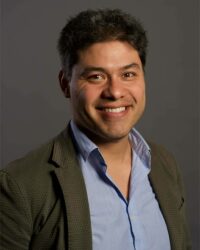 On 14 December SACEMA said goodbye to Wim Delva, Deputy Director for Research. John Hargrove writes: “It is with heavy hearts that we say farewell to Wim Delva –who has been associated with SACEMA since before the Centre was launched and before the first Director was appointed. Indeed, six months before I came down to be interviewed for the job in late 2005, Wim was already in negotiations to build links between SACEMA and his research unit in Ghent. And when I came to The Cellar for the first time, I found Wim already working away. He moved quickly and by 2006 when, by the way, he had only just completed his Masters in Medicine, he had already, pretty much single-handedly, raise the funds and organized an international conference in Stellenbosch. I was blown away by the self-confidence and organizational ability of the young man.
On 14 December SACEMA said goodbye to Wim Delva, Deputy Director for Research. John Hargrove writes: “It is with heavy hearts that we say farewell to Wim Delva –who has been associated with SACEMA since before the Centre was launched and before the first Director was appointed. Indeed, six months before I came down to be interviewed for the job in late 2005, Wim was already in negotiations to build links between SACEMA and his research unit in Ghent. And when I came to The Cellar for the first time, I found Wim already working away. He moved quickly and by 2006 when, by the way, he had only just completed his Masters in Medicine, he had already, pretty much single-handedly, raise the funds and organized an international conference in Stellenbosch. I was blown away by the self-confidence and organizational ability of the young man.
In the matter of getting funding for researchand meetings and the like, this productivity was to be his hallmark –and he has managed already to get more than 20 awards and grants during his short career. He has also produced more than 50 peer-reviewed papers, more than 30 of which have produced since 2013. Moreover, he has taught numerous courses, including ones on using R and on individual based modelling, and has developed an entirely new programme, Simpact, for carrying out agent-based modelling. Meanwhile, he has supervised five PhD students, six Masters by thesis and eight structured Masters students from AIMS.
On top of all of this industry Wim has consistently been a charming and gentle friend to so many at SACEMA. We shall miss him terribly, although we expect to continue to have links with him in the new phase of his working life.”
 SACEMA also said goodbye to Eduard Grebe. Alex Welte writes: “Eduard Grebe joined SACEMA in early 2015 at a time of SACEMA’s great need in an important research area –namely the development and applications of methods to generate robust estimates of HIV incidence. He rapidly took on key responsibilities in designing, maintaining, and analysing complex data structures which cut across multiple field and laboratory-basedprotocols. He has also worked on a number ofother more and less directly related threads, while also collaborating with and mentoring young researchers. He leaves us now to pursue exciting opportunities in San Francisco, a hub of biomedical research with emphasis on HIV related projects, where he will be working full time with SACEMA’s longstanding collaborators at Vitalant Research Institute–while still, we trust, staying involved with critical SACEMA projects”
SACEMA also said goodbye to Eduard Grebe. Alex Welte writes: “Eduard Grebe joined SACEMA in early 2015 at a time of SACEMA’s great need in an important research area –namely the development and applications of methods to generate robust estimates of HIV incidence. He rapidly took on key responsibilities in designing, maintaining, and analysing complex data structures which cut across multiple field and laboratory-basedprotocols. He has also worked on a number ofother more and less directly related threads, while also collaborating with and mentoring young researchers. He leaves us now to pursue exciting opportunities in San Francisco, a hub of biomedical research with emphasis on HIV related projects, where he will be working full time with SACEMA’s longstanding collaborators at Vitalant Research Institute–while still, we trust, staying involved with critical SACEMA projects”
STUDENT SCIENTIFIC ACTIVITIES
6th Heidelberg Laureate Forum
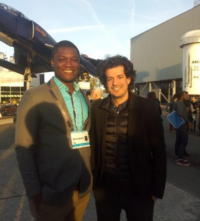 SACEMA PhD student, Elisha Are attended the 6thHeidelberg Laureate Forum (HLF) in Heidelberg, Germany from 22nd -27th of September 2018. The Heidelberg Laureate Forum is an annual event organized by the Heidelberg Laureate foundation to bring together 200 promising young mathematics and computer science researchers to meet with the greatest minds and leaders in their fields. 100 mathematicians and 100 computer scientists are selected by an international scientific committee from thousands of applicants from across the world. The HLF is a one-week forum of unrushed interaction between peers and laureate winners of mathematics and computer science (winners of Filed medals-often called the Nobel Prize of mathematics, Abel prize winners, ACM A.M. Turing award, ACM prize in computing and Nevanlinna prize).
SACEMA PhD student, Elisha Are attended the 6thHeidelberg Laureate Forum (HLF) in Heidelberg, Germany from 22nd -27th of September 2018. The Heidelberg Laureate Forum is an annual event organized by the Heidelberg Laureate foundation to bring together 200 promising young mathematics and computer science researchers to meet with the greatest minds and leaders in their fields. 100 mathematicians and 100 computer scientists are selected by an international scientific committee from thousands of applicants from across the world. The HLF is a one-week forum of unrushed interaction between peers and laureate winners of mathematics and computer science (winners of Filed medals-often called the Nobel Prize of mathematics, Abel prize winners, ACM A.M. Turing award, ACM prize in computing and Nevanlinna prize).
Elisha was selected for the doctoral category andreceived afull travel grant to attend the HLF. Elisha reports,“the 6th HLF is one of such events whose memories will last a lifetime. Apart from the overwhelming beauty of the ancient city and several tourist attractions, the rare privilege of meeting with some of the greatest mathematicians alive, and closely interacting with them for a whole week brings to mind the words of Sir Isaac Newton, who said “If I have seen further, it is by standing upon the shoulders of giants”. HLF provided several giants on whose shoulder one can stand on to see further. One of such giants is Professor Srinivasa S.R. Varadhan, who won an Abel prize in 2007 for his outstanding contributions to probability theory. I had sent him an email in advance, detailing my research interest, and that I would like to have a private discussion time with him. He obliged, and we met for about 30 minutes, discussing my Ph.D. project and he gave me very meaningful feedback and he offered new perspectives.
On a general note, the 6th HLF included several scientific presentations, workshops and panel discussions. The forum cut across many boundaries: national, scientific discipline, gender, race, and age. Everyone felt relaxed and at home. I will recommend this forum to all young researchers in the mathematical sciences”.
Epirecipes Workshop
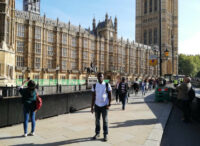 From 1-3 October, PhD student Gershom Buri attended the Epirecipes workshop at the Alan Turing Institute in London. The aim of the workshop was to develop a cookbook of epidemiological models, and implementing as many mathematical biology models as possible, in different programming languages. By doing so, the hope is to lower the barrier for new researchers entering the field of Epidemiological Modelling of infectious diseases. Buri reports, “at this event, I was able to discover new models, some of which were an extension of topics covered in the Clinic on Meaningful Modelling of Epidemiological Data (MMED), learn about new high-performance programming languages, and about new data analysis pipelines from some of the other participants. Most importantly, I obtained worthwhile inputs for my work. I extend my gratitude to the workshop organisers for hosting me during this time and to SACEMA for helpingwith some of the travel costs without which, I wouldn’t have been to attend”.
From 1-3 October, PhD student Gershom Buri attended the Epirecipes workshop at the Alan Turing Institute in London. The aim of the workshop was to develop a cookbook of epidemiological models, and implementing as many mathematical biology models as possible, in different programming languages. By doing so, the hope is to lower the barrier for new researchers entering the field of Epidemiological Modelling of infectious diseases. Buri reports, “at this event, I was able to discover new models, some of which were an extension of topics covered in the Clinic on Meaningful Modelling of Epidemiological Data (MMED), learn about new high-performance programming languages, and about new data analysis pipelines from some of the other participants. Most importantly, I obtained worthwhile inputs for my work. I extend my gratitude to the workshop organisers for hosting me during this time and to SACEMA for helpingwith some of the travel costs without which, I wouldn’t have been to attend”.
67th Annual meeting of the American Society for Tropical Medicine and Hygiene (ASTHM)
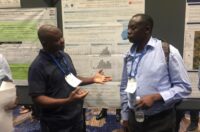 PhD student Timothy Awine participated in the 67th ASTMH annual conference which took place in New Orleans in the United States from 28 October to 1 November 2018. Over 4700 scientists from 119 countries were in attendance. There were more than 420 symposia, 470 oral and 1654 poster presentations respectively. Timothy’s poster presentation was titled “spatio-temporal heterogeneity of malaria morbidity in Ghana: analysis of routine health data”.This work is also part of the paperhe published this year in PlosOne (doi.org/10.1371/journal.pone.0191707). Timothy reports,“ I had an opportunity to attend some talks on malaria modelling and control intervention strategies being undertaken in other parts of Africa, where the disease burden is similar to the situation in Ghana. I also had the opportunity to interact with colleague presenters, especially those with interests in malaria, which is of interest to me with regards to my own research on modelling the dynamics of malaria morbidity in Gershom Buriin London 7Ghana.I am very grateful to the Tropical Epidemiology Group (TEG) of the London School of Hygiene and Tropical Medicine (LSHTM), for making my attendance at this year’s conference a possibility”.
PhD student Timothy Awine participated in the 67th ASTMH annual conference which took place in New Orleans in the United States from 28 October to 1 November 2018. Over 4700 scientists from 119 countries were in attendance. There were more than 420 symposia, 470 oral and 1654 poster presentations respectively. Timothy’s poster presentation was titled “spatio-temporal heterogeneity of malaria morbidity in Ghana: analysis of routine health data”.This work is also part of the paperhe published this year in PlosOne (doi.org/10.1371/journal.pone.0191707). Timothy reports,“ I had an opportunity to attend some talks on malaria modelling and control intervention strategies being undertaken in other parts of Africa, where the disease burden is similar to the situation in Ghana. I also had the opportunity to interact with colleague presenters, especially those with interests in malaria, which is of interest to me with regards to my own research on modelling the dynamics of malaria morbidity in Gershom Buriin London 7Ghana.I am very grateful to the Tropical Epidemiology Group (TEG) of the London School of Hygiene and Tropical Medicine (LSHTM), for making my attendance at this year’s conference a possibility”.
49th Union World Conference on Lung Health
 The 49th Union World Conference on Lung Health took place on 24-27 October 2018 in the Hague, the Netherlands; themed Declaring Our Rights: Social and Political Solutions. The conference took place just one month after the very first United Nations High Level meeting that aimed to enforce stronger commitment from politicians in the fight against TB, leading towards the Sustainable Development Goals to end TB by 2030.
The 49th Union World Conference on Lung Health took place on 24-27 October 2018 in the Hague, the Netherlands; themed Declaring Our Rights: Social and Political Solutions. The conference took place just one month after the very first United Nations High Level meeting that aimed to enforce stronger commitment from politicians in the fight against TB, leading towards the Sustainable Development Goals to end TB by 2030.
The conference had more than 4000 delegates from 136 countries. The opening plenary session included a young boy who developed Asthma due to secondary smoke inhalation on the public transport systems of Indonesia and his journey to advocacy and activism in improving legislation around smoking in public spaces. Other plenary sessions addressed the importance of a patient centred approach and the importance of patient advocacy. Lessons learnt from the HIV epidemic in terms of patient literacy, peer led interventions and community mobilisation were well demonstrated. A highlight was the call to shifting the language used so that we transition from HIV/TB collaborative activities to full integrated management of TB and HIV. Two SACEMA students, Muhammad Osman and Mmamapudi Kubjanepresented their work.
Muhammad Osmanpresented 4 abstracts:
- Good treatment outcomes in children with extensively drug-resistant tuberculosis: a systematic review and individual patient meta-analysisas an oral abstract. The importance of obtaining ongoing data was highlighted and the request was received for further global collaboration
- Trends in the South African tuberculosis epidemic with scale up of TB-HIV integration services,as a poster discussion. Within the same session similar work was shared from Southern Africa and alternative analytical approaches were highlighted. This will be used in the upcoming months as the abstract is developed into a manuscript
- Mortality amongst HIV-positive female tuberculosis patients in South Africawas a short oral and some useful questions were posed in terms of timing of death and these will be included in the detailed manuscript being planned
- Ten years of routine paediatric TB surveillance data in South Africa -high disease burden and poor treatment outcomeswas presented as an oral abstract on behalf of Dr Karen Du Preez
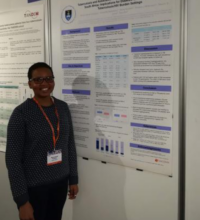 Mmamapudi Kubjane presented her poster on Tuberculosis and non-HIV comorbidities, titled: Tuberculosis and associated transient hyperglycaemia in peri-urban South Africa: implications for diabetes screening in high tuberculosis/HIV-1 burden settings (PS43-870-27).
Mmamapudi Kubjane presented her poster on Tuberculosis and non-HIV comorbidities, titled: Tuberculosis and associated transient hyperglycaemia in peri-urban South Africa: implications for diabetes screening in high tuberculosis/HIV-1 burden settings (PS43-870-27).
DARA Big Data Policy Fellowship training, October 2018
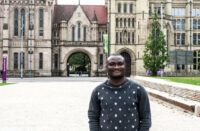 During October PhD student, JamesAzamand four others visited the University of Manchester for a policy communication fellowship training funded by the Development in Africa with Radio Astronomy (DARA)Big Data project. James reports, “theprogramme kicked off with the Fanaroff lecture, given by Dr Bernie Fanaroff, former Deputy Head of Office to Nelson Mandela, and Dr Rob Adam, Director of the South African Radio Astronomy Observatory, where they talked about three big science projects which they helped start, lessons learnt and the future of global science. During the month, we were trained by staff from Policy@Manchester on some of the tools of policy communication such as policy briefs and policy blogs. We also received sessions on podcasting by the Jodcast team at Jodrell bank.
During October PhD student, JamesAzamand four others visited the University of Manchester for a policy communication fellowship training funded by the Development in Africa with Radio Astronomy (DARA)Big Data project. James reports, “theprogramme kicked off with the Fanaroff lecture, given by Dr Bernie Fanaroff, former Deputy Head of Office to Nelson Mandela, and Dr Rob Adam, Director of the South African Radio Astronomy Observatory, where they talked about three big science projects which they helped start, lessons learnt and the future of global science. During the month, we were trained by staff from Policy@Manchester on some of the tools of policy communication such as policy briefs and policy blogs. We also received sessions on podcasting by the Jodcast team at Jodrell bank.
We also visited Jodrell Bank, which houses the Lovell Telescope and the Square Kilometre Array (SKA) Global Headquarters. There, we had a session with Simon Berry, Director of Corporate Strategy, and William Garnier, Director of Communications, Outreach and Education. In that session, we talked about the SKA project, how it became a reality through strategic communication, the potential infrastructural requirements of the project, and some lessons learnt so far.
As part of the programme, I spent half of my time at the Department of Mathematics, hosted by Dr Lorenzo Pellis and the modelling group. There, I continued to conduct my own research and attended some of the activities organised by the modelling group.
During the fellowship training, we were tasked to identify a policy relevant research article from our host departments. At the end of the fellowship, we worked in groups of three to produce a policy brief, a policy blog article explaining the science and policy implications of the chosen paper. My group worked on smallpox and the need for a safer vaccine. To culminate the fellowship, we gave a presentation to a general audience at the Physics and Astronomy Department.
Overall, it is an experience that I cannot simply express. I have now been introduced to policy communication and the tools available for achieving it. With this training, my research communication is going to improve drastically, and I am thankful to the DARA Big Data project and my supervisor, Prof Juliet Pulliam for making this possible”.
Science communication for Policy Engagement Panel Discussion at Science Forum South Africa (SFSA), December 2018
As a follow up of the DARA Policy training, JamesAzamjoined his colleague 2018 DARA Big Data Policy Fellows and some scientists from across Southern Africa in a panel discussion at the Science Forum South Africa (SFSA) in December 2018. Also on the panel was John Wade Smith, Regional Head of Science and Innovation, British High Commission, Pretoria. The discussion was titled, “Science communication for policy engagement”. During the discussion they differentiated between science communication and policy and reflected on the optimal timing for training young researchers in policy communication. They also discussed the challenges faced by researchers in trying to communicate their work and the way forward. They further touched on the industrial revolution and where Africa stands in the conversation, how they could use data to inform policy decisions and how the data revolution would help achieve the sustainable development goals.
James reports, “the event was a huge success amidst anxiety as most of us were only doing this for the first time. The packed room was proof that this was a hot topic. In attendance were various people from Academies of Science around the world, science journalists and some science writers, of whom, one was from Nature”.
FameLab Heat
SACEMA PhD student Elisha Areaand Junior Researcher Zinhle Mthombothiwerenominatedby SACEMAto participate in the FameLab heat held in Pretoria on 11-13 December.FameLabis an international science communication competition which started in South Africa in 2013. The feedback from Elisha and Zinhle was very positive. According to Elisha, “it was a whole new experience for me. I enjoyed every bit of it-the workshop, thepre-heat and the heat itself. I met young and highly motivated scientists working in highly diverse scientific disciplines. It’s interesting to see how participants gave their best to communicate their research in a very simple manner, without using any jargon and still keeping the scientific content of their research. Which was actually more challenging than I thought. I learned a lot and I strongly believe that my science communication skill has improved. I’ll recommend FameLab to young scientists hoping to make a difference”.

Zinhle Mthombothi at the FameLab heat in Pretoria
Zinhle reports,“FameLab was an eye-opening event for me. I think it’s a training every scientist should have. You’d be surprised at how one technical term can cause your whole message to be lost. I would highly recommend it to everyone hoping to communicate their work effectively to both the scientific and non-scientific community”.

Zinhle Mthombothi at the FameLab heat in Pretoria
EVENTS
Calibrating simulation models to data Workshop
On20 November 2018SACEMA hosted a workshop at the Stellenbosch Institute for Advanced Study (StIAS), on Calibrating Simulation Models to Data. The workshopwas presented by Carivan Schalkwyk, Wim Delva and Marijn Hazelbagof SACEMA. Participants included a small group of students from the School of Public Health and Family Medicine at the University of Cape Town as well as a few SACEMA students. This first edition of the workshop provided participants with a gentle introduction to fitting stochastic simulation models to data (i.e. model calibration), after which several calibration methods were applied to a simple, dynamic transmission model. Participants appreciated the workshop, one of the workshop participants noted: “Cari, Marijn and Wim were wonderful,and I really enjoyed how they bounced ideas off of each other during the workshop, I find that a great learning tool.” The workshop was very much a work in progress and next editions will involve more“hands-on” practicals to get students proficient withapplyingcalibrationmethods to dynamic simulation models in infectious disease epidemiology. The organizers are already looking forward to the second edition!
SEAMS Workshop
From 26 November till 7 December, the fourth edition of the SEAMS workshop took place in Muizenberg, at the African Institute for Mathematical Sciences (AIMS)South Africa site.
SEAMS stands for Software Engineering for Applied Mathematical Sciences. Rather than focusing on the scientific questions to be addressed, the goal of this workshop was to help participants develop practical 12skills and think critically about engineered solutions to their scientific research challenges. Topics included, but were not limited to, communicating the goals and challenges of your software engineering challenge clearly and efficiently, designing and planning the project with minimum requirements, use cases and users in mind, turning frequently used code into a stand-alone Python module or R package, improving and automating code documentation, version control with git, issue tracking, unit testing, formats and methods for data input and output, and accelerating computational performance with parallel computing. The second week of the workshop was a multi-day hack-a-thonof participants’ own research code, culminating in live demos of the engineered improvements to the other workshop attendees on the last day.
SACEMA’s Wim Delva and students Faikah Bruce, Laurette Mhlanga, Andrew Maher, Emanuel Dominic and Jeremy Bingham participated in the workshop, while SACEMA Technical Officer, Perceval Maturure, and Research Fellow, Carl Pearson, were on the workshop faculty
Participant feedback confirmed that this was a highly relevant and inspirational, interactive workshop taught by a world-class team of lecturers.
SACEMA Research Days10-13 September 2018
SACEMA’s annual Research Days meeting was held over four days at the delightful venue of the Protea Hotel at the Technopark near Stellenbosch. More than seventy people took part, included SACEMA bursary holders, their supervisors, and postgraduate studentsfrom the Biochemistry Department working with Prof Snoep, who holds the SACEMA-associated South African Research Chair (SARChI). A number of external supervisors, research associates and collaborators joined for all or part of the time. The meeting was launchedwithfour training workshops offered to students over the first two days: Speaking Confidently in Public was facilitated by media trainer Vicky Davis; Introduction to Writing and Publishing a Scientific Article was facilitated by Morna Cornell fromUCT; Open Science was facilitated by Eduard Grebe of SACEMA; Moving Toward Reproducible Researchwas facilitated by Juliet Pulliam of SACEMA and Roxanne Beauclair, SACEMA Research Associate. The Student Forumwas moderated by Emanuel Dominic,Masters student at SACEMA, and Zoe Gill, PhD student at UCT. The Supervisor Forumwas attended by a number of external supervisors as well as those from SACEMA.
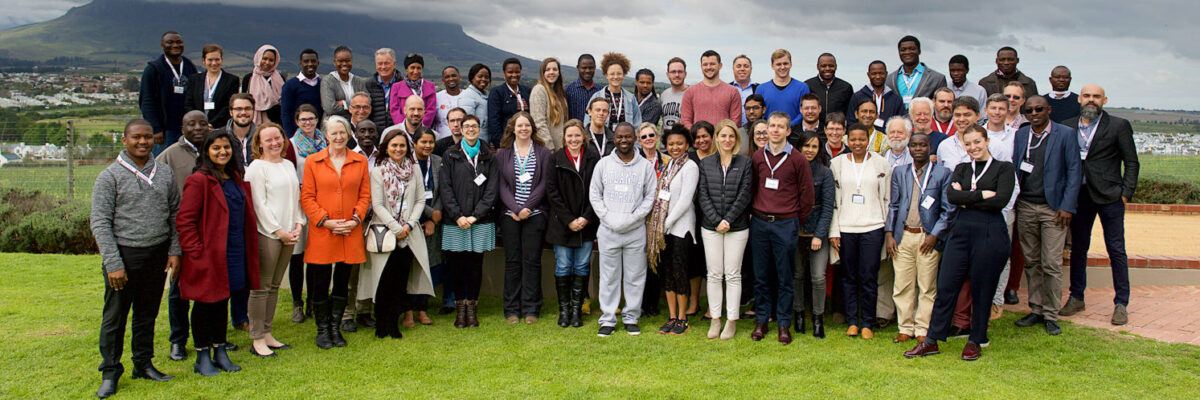
SACEMA staff, research associates, fellows and students
Two inspiring and highly motivating keynote talks were presented, by Glenda Gray and Savo Heleta. Seven SACEMA staff members gave talks on their work, as did ten students, while thirty-one students presented posters in two poster sessions, prefaced by 2-minute poster-pitches. Prizes were awarded for best student talk (Emanuel Dominic), best poster pitch in each pitch session (Kathleen Green & Wynand van Staden), and best poster in each poster session (Zoe Gill & David Phair, with Jenna Patterson receiving Honorary Mention). As usual, the meeting offered an opportunity for emerging researchers to receive constructive critique and practise presentational skills in a friendly environment. Judges’ and mentors’ written feedback was collated and sent to all students afterwards to supplement the feedback they received in oral interaction.
The four days climaxed with what is becoming an excellent tradition –a debate on a hot topic, this time the often tempestuous and yet potentially fruitful relationship between Science and the Social Media. The lively debate was moderated by SACEMA Junior Researcher Zinhle Mthombothi, and the speakers were David Niyukuri and Wanja Chabaari. David received the prize, based on the outcome of the voting on the motion at the end of the debate. Social events during Research Days were: a spit-braai on Monday evening, a reception on Tuesday, and the conference dinner on Wednesday. These gaveplenty of opportunity for deepening friendships and making new friends, as well as networking and building lasting collaborations.
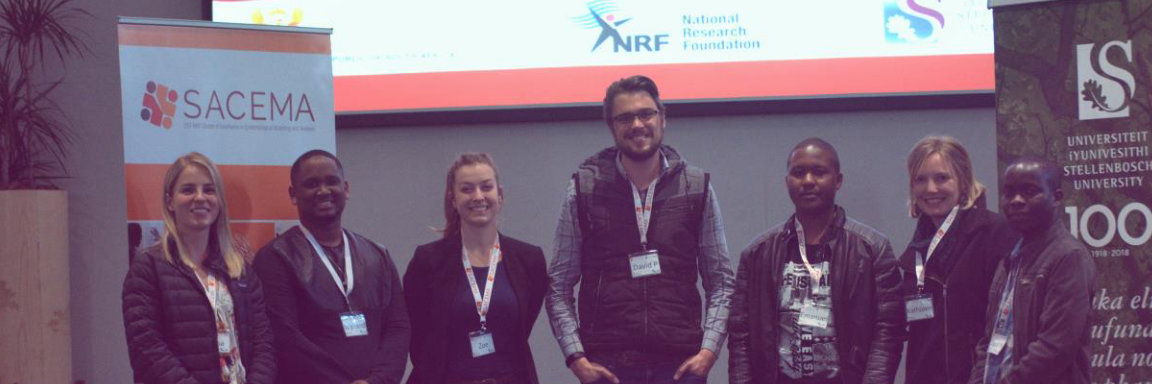
Prize winners from left to right: Jenna Patterson, Wynand van Staden, Zoe Gill, David Phair, Emanuel Dominic, Kathleen Green, David Niyukuri
PhD Proposal Defences
SACEMA held two formal doctoral proposal defences on Thursday 6 December 2018at 11h00, in the SACEMA Boardroom. The outcome of each proposal evaluation was based on both the written proposal and the oral defence of the proposal. During the oral defence, each candidate spoke for 20 minutes, and this was followed by points of clarification and further questions and answers for about 50 minutes. The two students successfully defended their proposals:
- Title: Extinction probabilities for Tsetse (Glossina spp) populations in a world of changing climate.
Candidate: Elisha Are
Supervisor: Prof John Hargrove
Panel: Prof Juliet Pulliam, Dr EduardGrebe. Also, present were the supervisor, Prof John Hargrove - Title: Measles outbreak response vaccination: the role of the supply chain in low-income settings.
Candidate: James Azam
Supervisor: Prof Juliet Pulliam
Panel: Dr LinkePotgieter, Prof Alex Welte and Dr Brian Williams (present virtually, interacting from Geneva). Also, present were the supervisor, Prof Juliet Pulliam, SACEMA Assistant Director for Training, Dr Gavin Hitchcock, and SACEMA Training Coordinator, Masimba Paradza
SACEMA seminars
The following seminars were held between August and December:
31/08/2018: Prof Wim Delva(SACEMA): The Future and Past Impact of Early Access to Art on HIV Incidence in Eswatini: A Modelling Study.
21/09/2018: Dr James Seddon(Imperial College London): Trying to better understand the burden of childhood tuberculosis: accidental adventures in modelling
28/09/2018: Prof Thomas Scriba(SA Tuberculosis Vaccine Initiative, UCT): Vaccination against TB: old dog and new tricks.
03/10/2018:Muhammad Osman(SACEMA PhD student, SU): TB-associated mortality in South Africa: longitudinal trends and the impact of health system interventions.
05/10/2018: Prof Chris Kenyon(Institute of Tropical Medicine, Antwerp, Belgium): A population’s STI prevalence is largely determined by the connectivity of its sexual network and the genital microbiome this produces
10/10/2018: Tracy Glass(SACEMA PhD student, UCT): Estimating and monitoring child health at population level: A model-based assessment of health facility-based data.
17/10/2018: Elisha Are(SACEMA PhD student): The weakest link: Exploring global uncertainty and sensitivity of extinction probability for tsetse flies (Glossina spp).
19/10/2018: Dr Ivana Parker: The impact of pre-exposure prophylaxis on HIV antibody maturation.
26/10/2018: Dr Andrew MacNab(Honorary Research Fellow at STIAS): Promoting Future Health. Why are our children and what they learn in school so important?
31/10/2018: Menard Chihana(SACEMA PhD student, UCT): A multisite analysis of population based cross-sectional HIV/AIDS data to assess the cascade of care in the era of wide spread preventive and treatment programs in four high HIV prevalence sub-Saharan countries: Kenya, Malawi, South Africa, and Zimbabwe”.
07/11/2018: Emanuel Dominic (SACEMAMSc student): MSc Defence: Age-Mixing Patterns and Associations Between PartnerAge Differences and Relationship Characteristicsthat Affect HIV Transmission Risk.
09/11/2018:Cari van Schalkwyk (SACEMA): Estimated impact of HPV vaccines on infection burden: the effect of structural assumptions.
16/11/2018: Andrew Maher (SACEMA PhD student): Use of a Home-based Testing Program for Longitudinal Estimation of HIV Incidence in Namibia’s Zambezi Region.
21/11/2018: Marijn Hazelbag (SACEMAPostdoc Fellow): Potential research projects for 2019.
23/11/2018: Dr Birnhanu Ayele(Faculty of Medicine & Health Sciences, SU): Joint modelling of HCV and HIV from cross-sectional serological data.
12/12/2018: Dr Tom Hladish(University of Florida): Designing effective control of mosquito-borne diseases by combining interventions.
UPCOMING EVENTS
FameLab Heat
SACEMA in conjunction with Jive Media will be hosting a FameLab heatat the Stellenbosch Institute for Advanced Study on 25 and 26 February 2019. FameLab is a programme that aims to develop science communication skills, and more specifically public speaking skills, in young scientists between the ages of 21 and 35. SACEMA funded students are encouraged to participate in this fun, interesting initiative.
Introduction to Epidemiology and Research Methodology
This Stellenbosch University shortcourse, presented by Dr Jo Barnes, will take place over 13 weekly sessions,on Tuesdays, at SACEMA, starting February 2019
Quantitative Bias Analysis
This intensive 3-day course will be presented in Stellenbosch by Professor Matthew Fox of the Department of Epidemiology and the Center for Global Health and Development at Boston University from 13-15 May 2019.
Clinic on Meaningful Modellingof Epidemiological Data
The tenth annual Clinic on Meaningful Modelling of Epidemiological Data (MMED) will be held at AIMS South Africa on 27 May –June 7, 2019. MMED is part of the International Clinics on Infectious Disease Dynamics (ICI3D) Program, a collaboration between SACEMA and the University of Georgia’s College of Public Health.
The MMED clinic is a two-week workshop that brings together junior researchers from North America and Africa, with the goal of engaging the participants in epidemiological modeling projects that use real data to grapple with practical questions in a meaningful way. Applications will be available in mid-January. Please check the ICI3D website for further information (www.ici3d.org/mmed)


